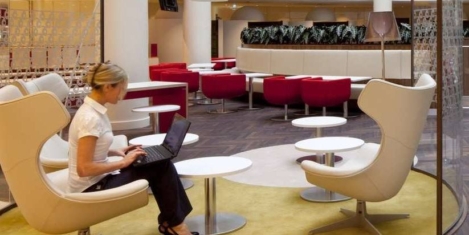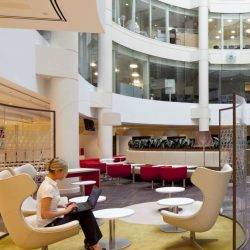April 4, 2017
Europe’s workers turn to the gig economy 0
 European employees appear ready to embrace the ‘ gig economy ‘, according to research by ADP. The study of nearly 10,000 European working adults claims to reveal how employees across Europe feel about the future of work. As many as 63 percent of UK employees and 68 percent of European employees are interested in, or would consider self-employment or freelancing although the desire for this style of working does vary drastically across regions. According to the report a third (33 percent) of UK employees say work-life balance is a key motivating factor although pay is still the ultimate driver for all European employees.
European employees appear ready to embrace the ‘ gig economy ‘, according to research by ADP. The study of nearly 10,000 European working adults claims to reveal how employees across Europe feel about the future of work. As many as 63 percent of UK employees and 68 percent of European employees are interested in, or would consider self-employment or freelancing although the desire for this style of working does vary drastically across regions. According to the report a third (33 percent) of UK employees say work-life balance is a key motivating factor although pay is still the ultimate driver for all European employees.

















 Accommodation and food services, manufacturing, and transport industries will be hardest hit by limits on movement of EU and non-EU workers following Brexit, a new report has claimed. The latest edition of Mercer’s
Accommodation and food services, manufacturing, and transport industries will be hardest hit by limits on movement of EU and non-EU workers following Brexit, a new report has claimed. The latest edition of Mercer’s 

 Gig economy workers are as likely to be satisfied with their work as workers in traditional employment, according to a major new survey published today by the CIPD which provides the first robust estimate of the size of the gig economy. Currently, 4 percent of UK working adults aged between 18 and 70 are working in the ‘gig economy’, which means approximately 1.3 million people are engaged in ‘gig work’ according to ‘To gig or not to gig: Stories from the modern. The report, which is based on a survey of 400 gig economy workers and more than 2,000 other workers, as well as 15 in-depth interviews with gig economy workers found that nearly two-thirds (63 percent) believe the Government should regulate to guarantee them basic employment rights and benefits such as holiday pay. But the research also found that, contrary to much of the rhetoric, just 14 percent of respondents said they did gig work because they could not find alternative employment.
Gig economy workers are as likely to be satisfied with their work as workers in traditional employment, according to a major new survey published today by the CIPD which provides the first robust estimate of the size of the gig economy. Currently, 4 percent of UK working adults aged between 18 and 70 are working in the ‘gig economy’, which means approximately 1.3 million people are engaged in ‘gig work’ according to ‘To gig or not to gig: Stories from the modern. The report, which is based on a survey of 400 gig economy workers and more than 2,000 other workers, as well as 15 in-depth interviews with gig economy workers found that nearly two-thirds (63 percent) believe the Government should regulate to guarantee them basic employment rights and benefits such as holiday pay. But the research also found that, contrary to much of the rhetoric, just 14 percent of respondents said they did gig work because they could not find alternative employment.













April 3, 2017
Brexit should be a chance for the UK to enshrine employment rights 0
by Chris Rowley • Comment, Legal news, Workplace
(more…)